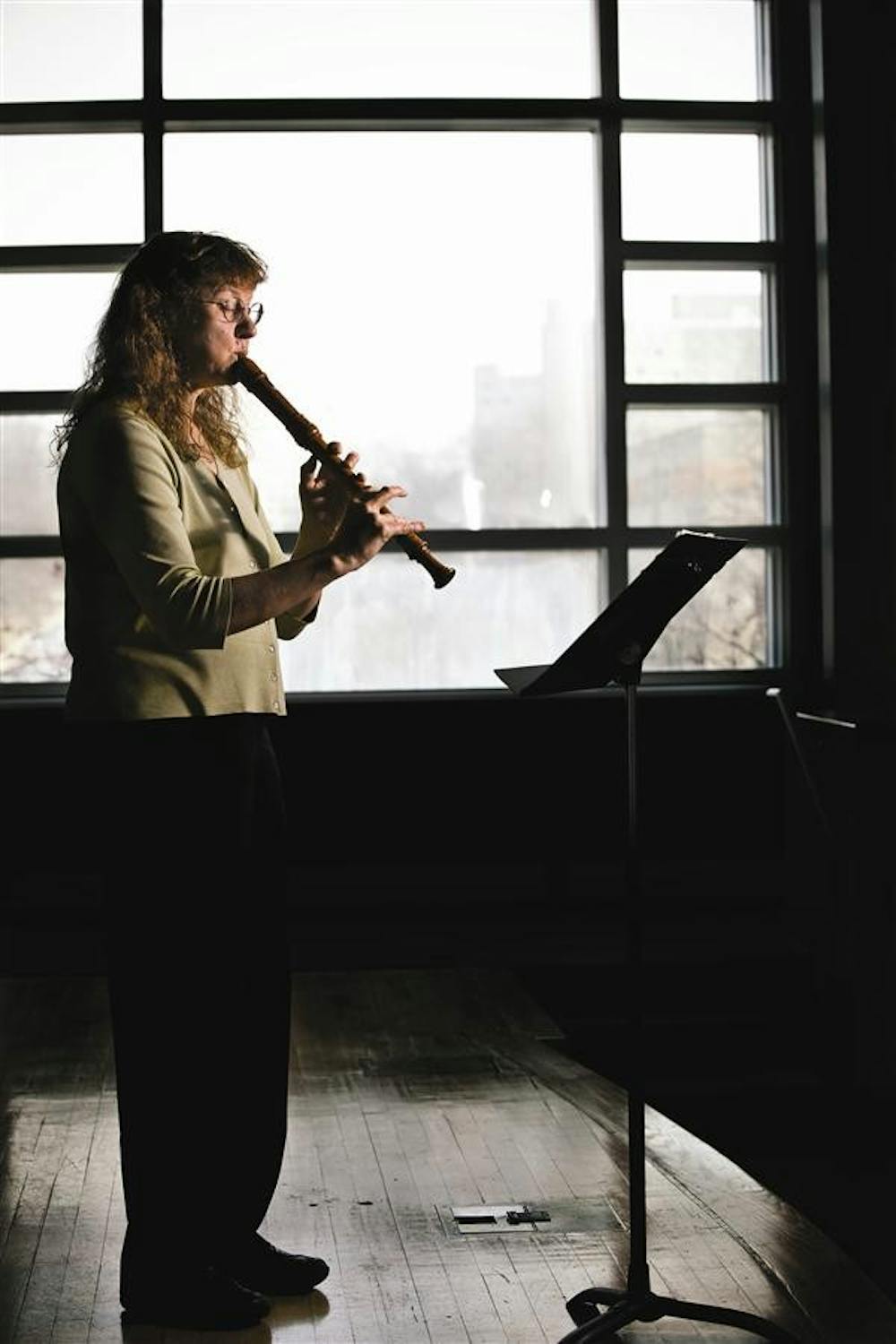Q. Why did we learn to play the recorder in elementary school?
A. Most of us squeaked our way through third or fourth-grade music class, smiling proudly when we mastered “Hot Cross Buns” on our recorders. Then we lost the plastic, spit-filled instruments under our beds or in our closets.
Years later, we at Inside wondered why we spent hours practicing the instrument that disappeared from our lives once we turned 11. Local and state recorder gurus helped us set the facts straight.
Sarah Fronczek, education specialist in curriculum and instruction at the Indiana Department of Education, says the recorder is the typical wind instrument for kids to learn for two reasons: cost and simplicity. Teachers can buy the basic kind in bulk for a couple bucks each.
“As opposed to the clarinet or something, it’s an easier instrument to learn,” Fronczek says.
Beginning in third grade, students in Indiana are expected to “play given pitch patterns on a mallet instrument, keyboard, or recorder,” according to Indiana’s music education standards. In fourth grade, standards include students playing “pitched and non-pitched percussion instruments, keyboards, and recorders (as identified by curriculum) using correct techniques for holding instruments and producing sound.”
These standards comply with the national standards, which are less specific. Whether or not the recorder is the instrument of choice is a local decision, Fronczek says, but typically schools favor these instruments that have earned the reputation as a “child’s instrument.”
Fourth-graders at Fairview Elementary School in Bloomington play the recorder twice a week for 40 minutes. Although at times the shrill whistles aren’t the prettiest music to her ears, music teacher Kathryn Heise enjoys the students’ response to learning the instrument.
“It gives them a sense of accomplishment – they can read music, they can count music,” she says. “So, next time they come into music class, it’s not just them banging on instruments. They’re able to understand music.”
For some, the enjoyment of the recorder stretches well beyond their elementary school days. Laura Hagen, coordinator of the Pre-College Recorder Program at the Jacobs School of Music, is working toward a master’s in recorder pedagogy and is finishing up a performer’s diploma in recorder. She has played the recorder for more than 30 years.
Under her supervision, the program offers individual lessons for kids ages seven to 18. Hagen hopes students leave with not only a grasp on recorder technique, but also an appreciation for the history of the instrument.
“The unfortunate fact is that in the U.S., it has been viewed as a pre-orchestral instrument,” Hagen says.
The recorder is part of the early music department at the school of music, which includes Medieval, Renaissance, and Baroque music. To show just how popular the recorder was in earlier times, Hagen calls on a little-known fact: King Henry VIII of England was thought to have owned about 75 recorders at the time of his death.
“It’s a beautiful instrument,” Hagen says. “People usually get a lot of enjoyment from it right from the start.”






